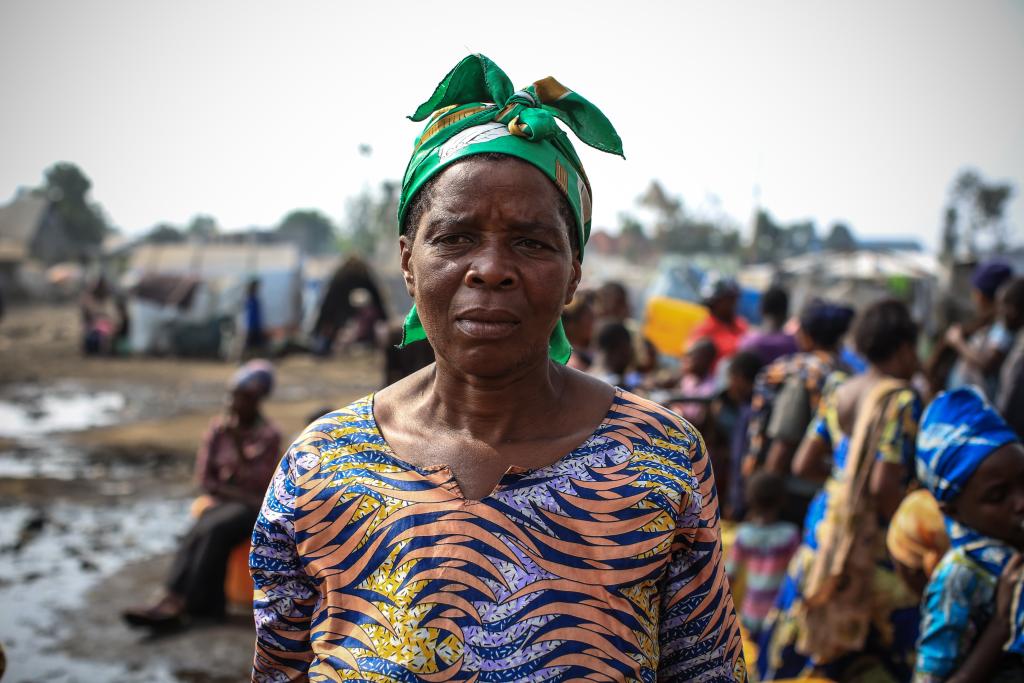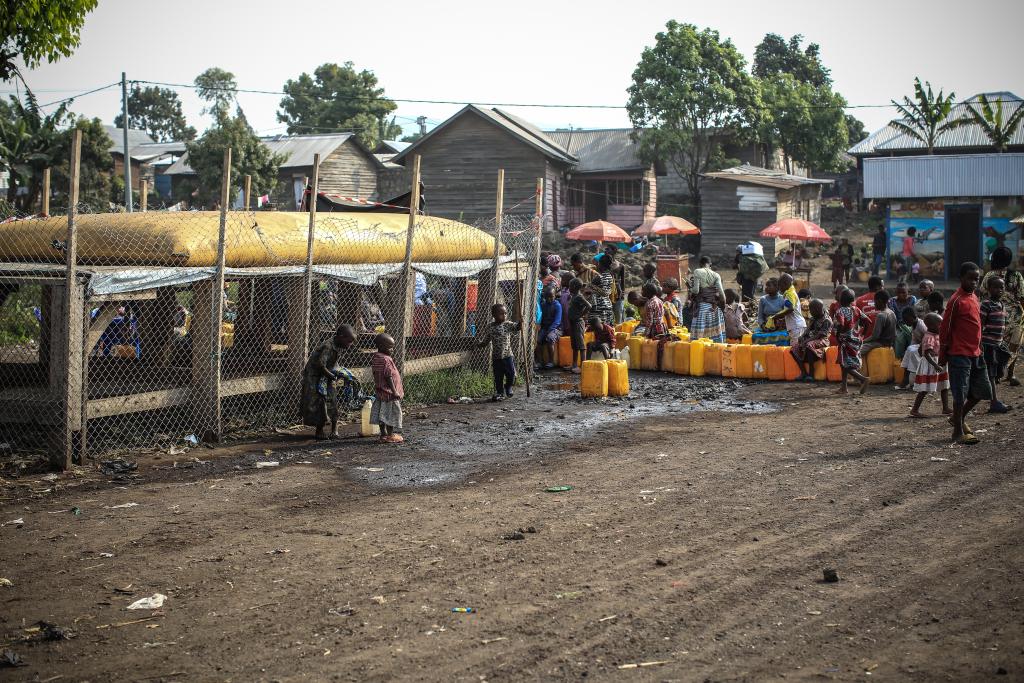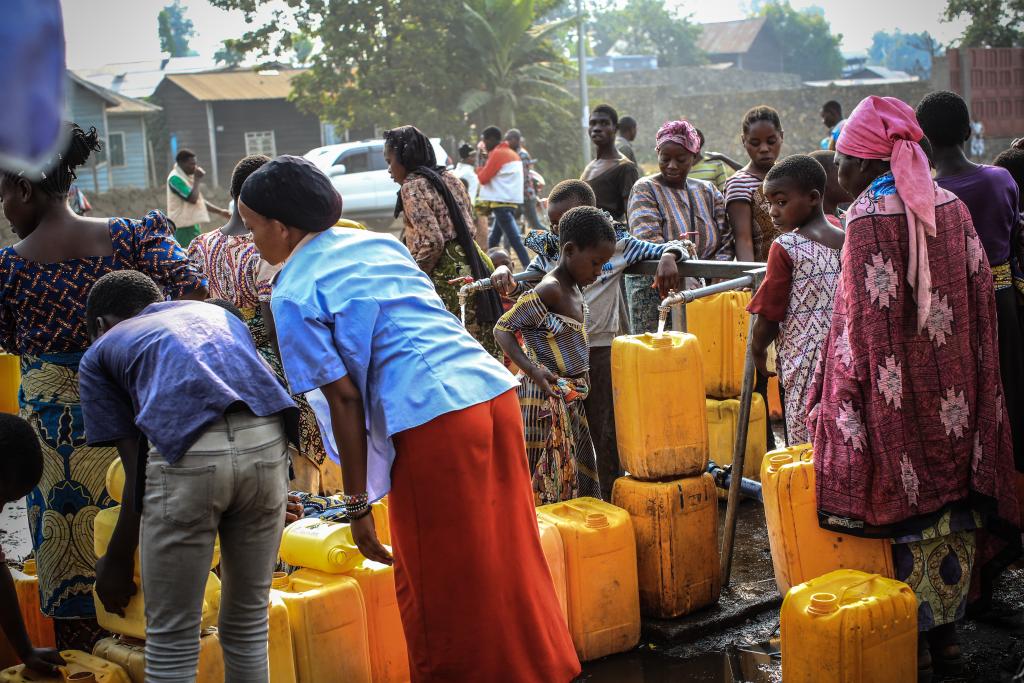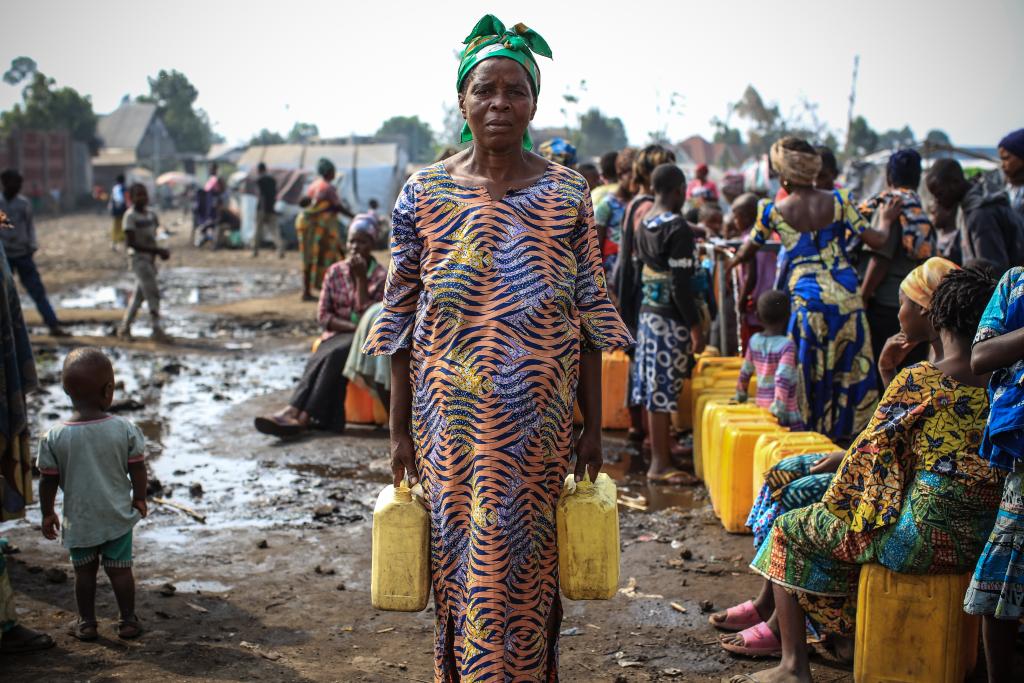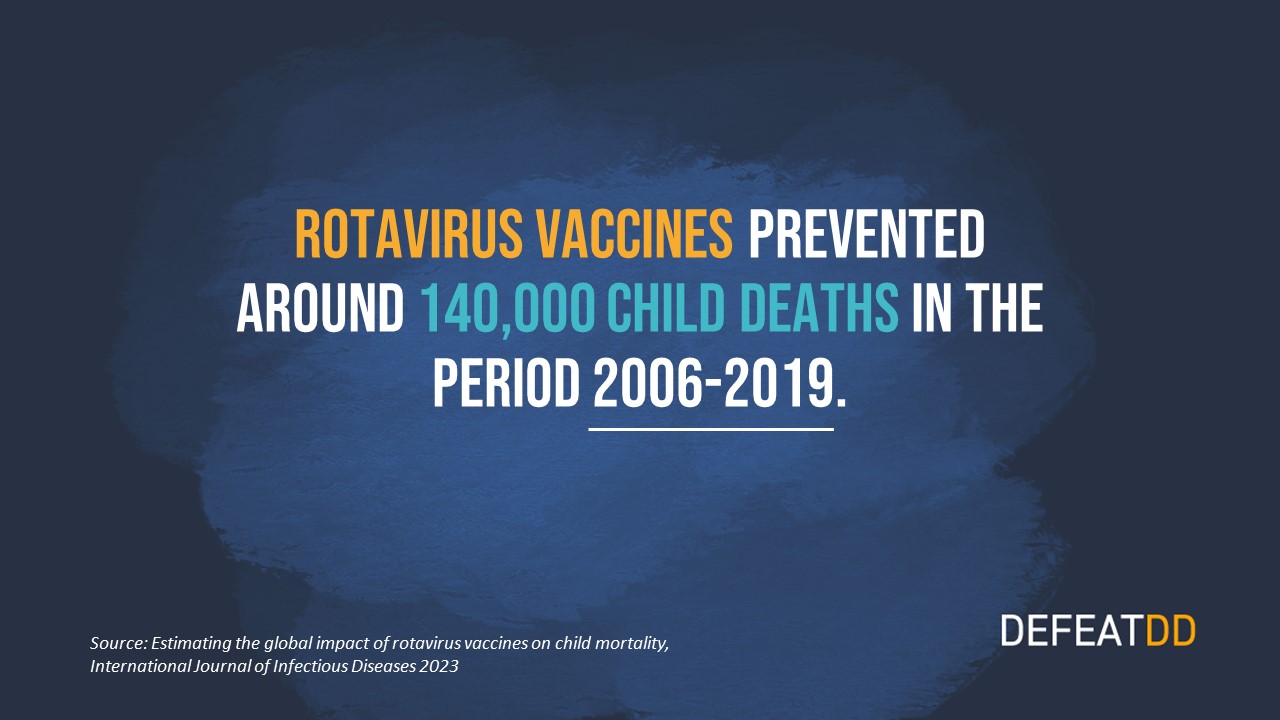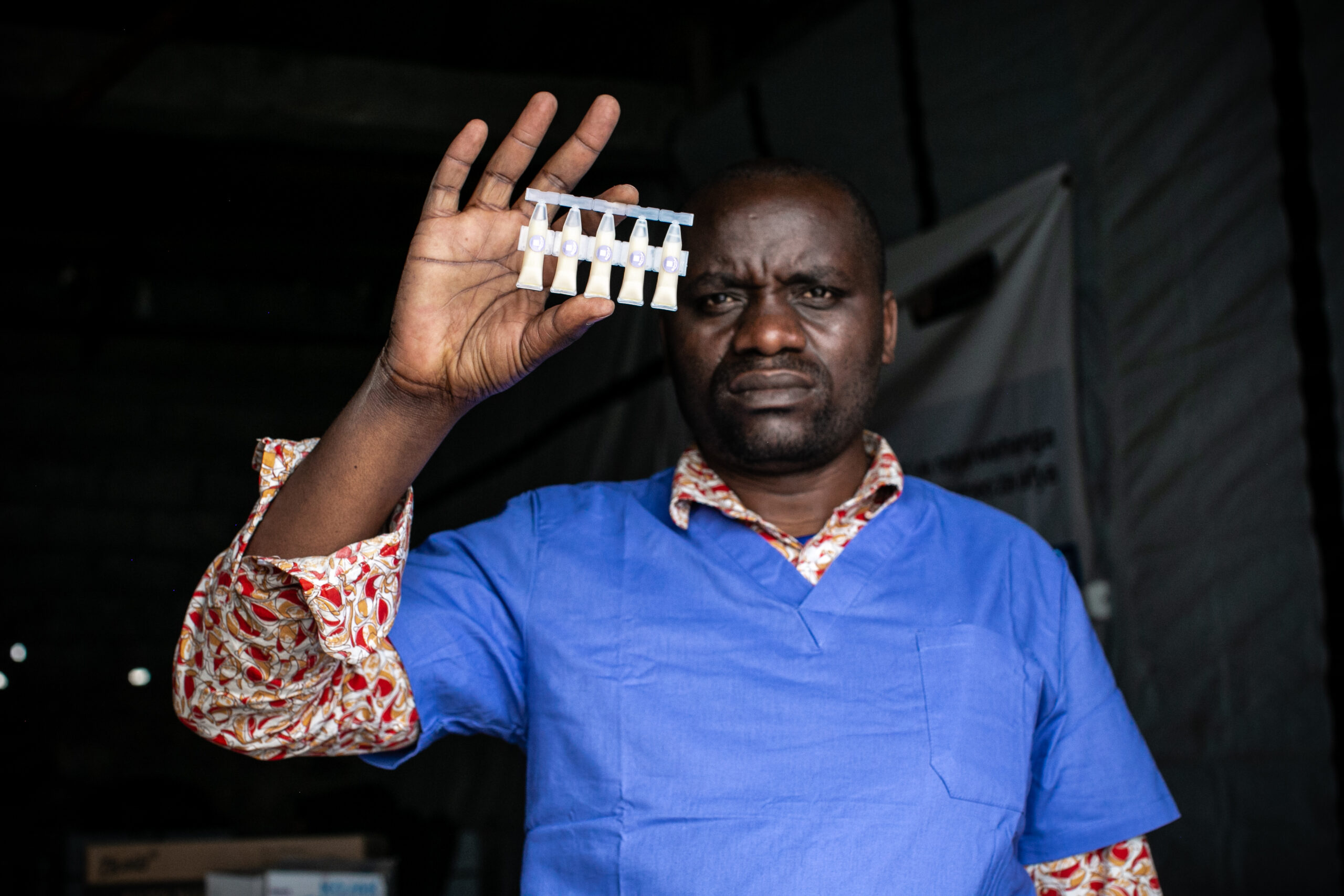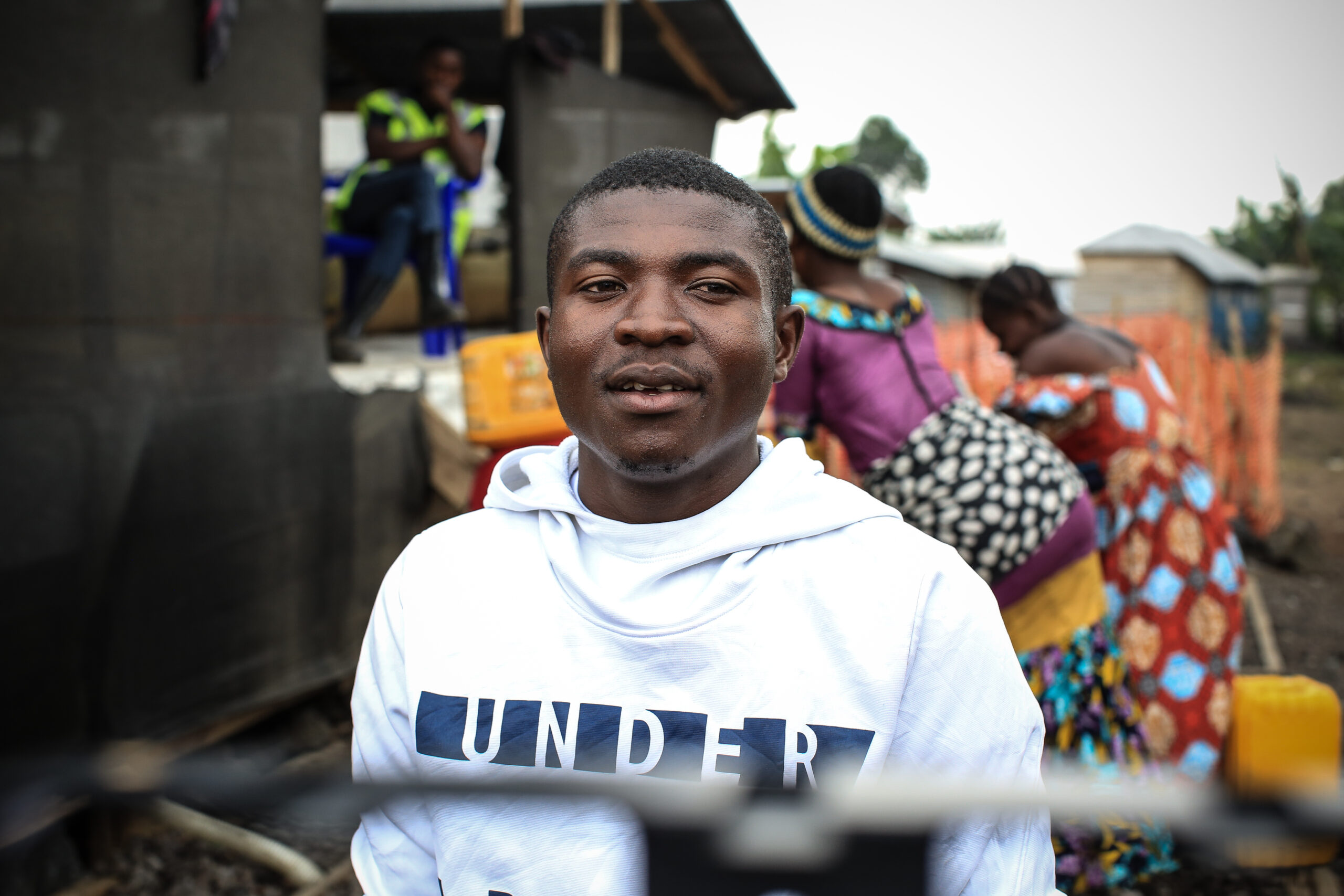A mother protects her family's health and safety
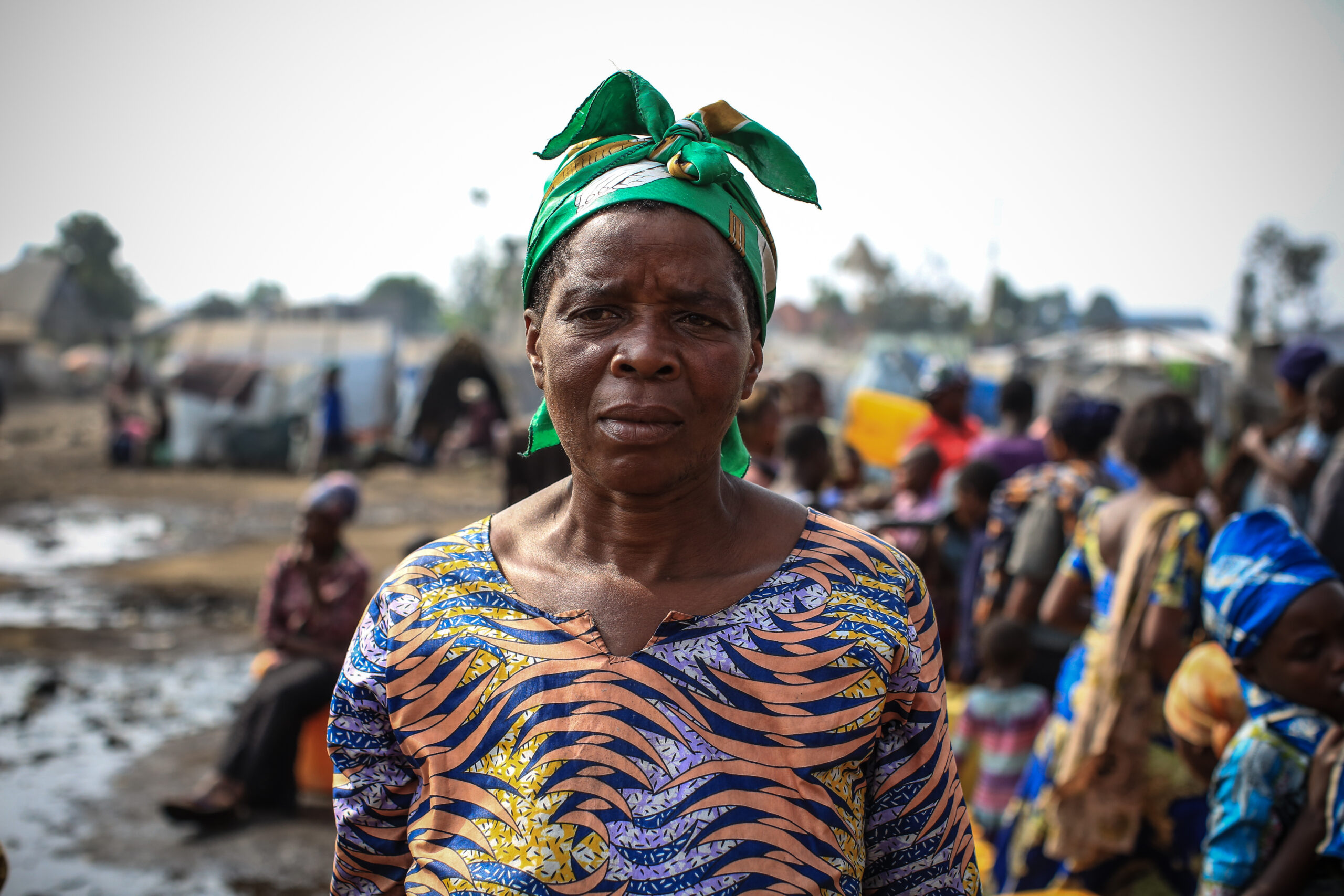
Emergency situations intensify the risk of severe diarrhea. Waterborne diseases like cholera spark
epidemics amid conflict, flooding, drought, or even displacement from volcanic eruption. Vaccines and education can save lives.
Espérance Leonard is a mother of nine. Explore her story below, and learn more from the others we interviewed for this series:
– Joseph Muhisi, nurse supervisor
– Dr. Raphaël Senga, regional laboratory director
– Augustin Mikizi, community liaison officer
Photos: PATH/Ley Uwera.
“It was at night and I was afraid.” Espérance Leonard recalled the harrowing peak of her son’s illness. “I took him to a health center near the internal displacement camp. Very quickly the doctor confirmed that it was cholera.”
Espérance cares for her nine children in a camp for displaced people outside Goma, the capital city of the Democratic Republic of Congo. Violence from civil war threatened her family’s safety and forced them to abandon their home.
Espérance is one of 5.5 million displaced people forced to run from warfare, violence, and environmental emergencies in DRC. The violence is often gender-based, and displaced women face immense risk. Many of them carry this heavy burden while also raising children in a crisis.
Her children were not the only vulnerable victims of cholera. Two separate infections overtook Espérance for several weeks, as well. After her recovery, “the doctor suggested that I take precautions like good hygiene.” Her family has received vaccines as well. Much in her life is uncertain, but Espérance knows now that simple interventions can break the cycle of cholera.


